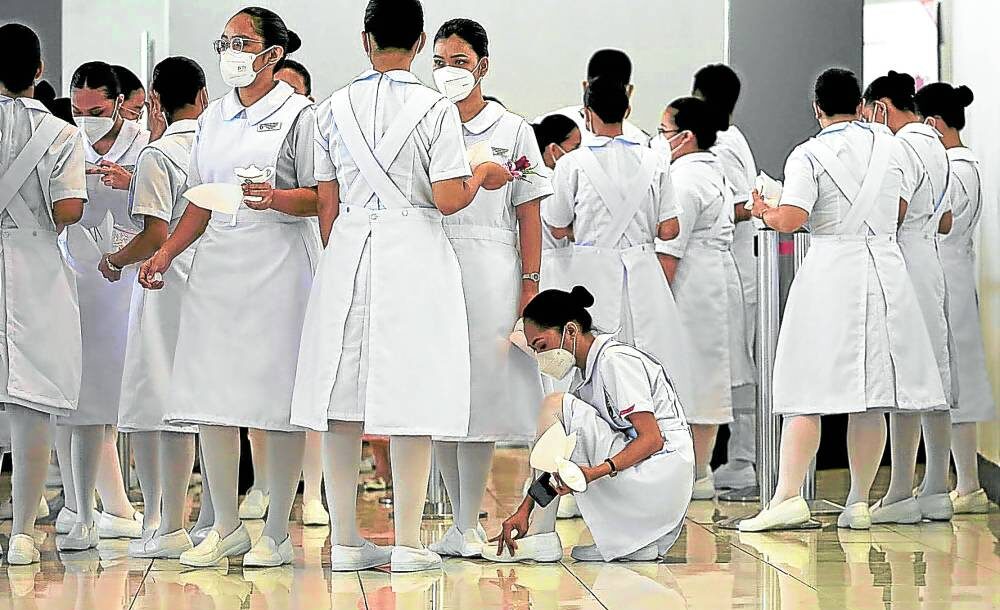Throughout the pandemic, various aspects of society have been brought to the forefront, none more crucial than the state of the healthcare system. Previously concealed flaws within healthcare, overshadowed by other national priorities, have now been exposed.
Challenges such as inadequate wages, lack of hazard pay, and suboptimal working conditions have driven many healthcare workers to seek opportunities abroad. Instead of addressing these issues, the proposal to employ unlicensed nurses has been tabled.
The Department of Health (DOH) suggests recruiting unlicensed nurses to fill vacancies in public hospitals, including those who have nearly passed the board exam and may receive temporary licenses.
In theory, this proposal offers potential benefits, providing nursing students with hands-on experience before licensure. However, the Philippines has a history of promising initiatives marred by poor execution.
Should this proposal proceed, meticulous planning is essential. The focus should be on enhancing students’ chances of passing their licensure exams through practical experience, rather than relying on connections made during the program.
Issues like student overwork, ensuring quality of care, and overall safety must be thoroughly addressed. Granting temporary licenses to candidates scoring between 70 percent and 74.9 percent on the board exam presents further concerns, including patient hesitancy due to perceived inexperience.
Moreover, this sets a precedent for other professions, raising questions about future shortages in fields like law or engineering. The potential ripple effects demand careful consideration.
Ultimately, this proposal serves as a short-term fix for deeper systemic issues within the healthcare system. The DOH must prioritize long-term solutions, ensuring healthcare workers are not compelled to seek opportunities abroad.
The government’s reliance on band-aid solutions to mask inadequacies is unsustainable. Meaningful progress requires introspection and a commitment to addressing core issues.
The insights provided stem from a survey conducted by Capstone-Intel Corporation.




